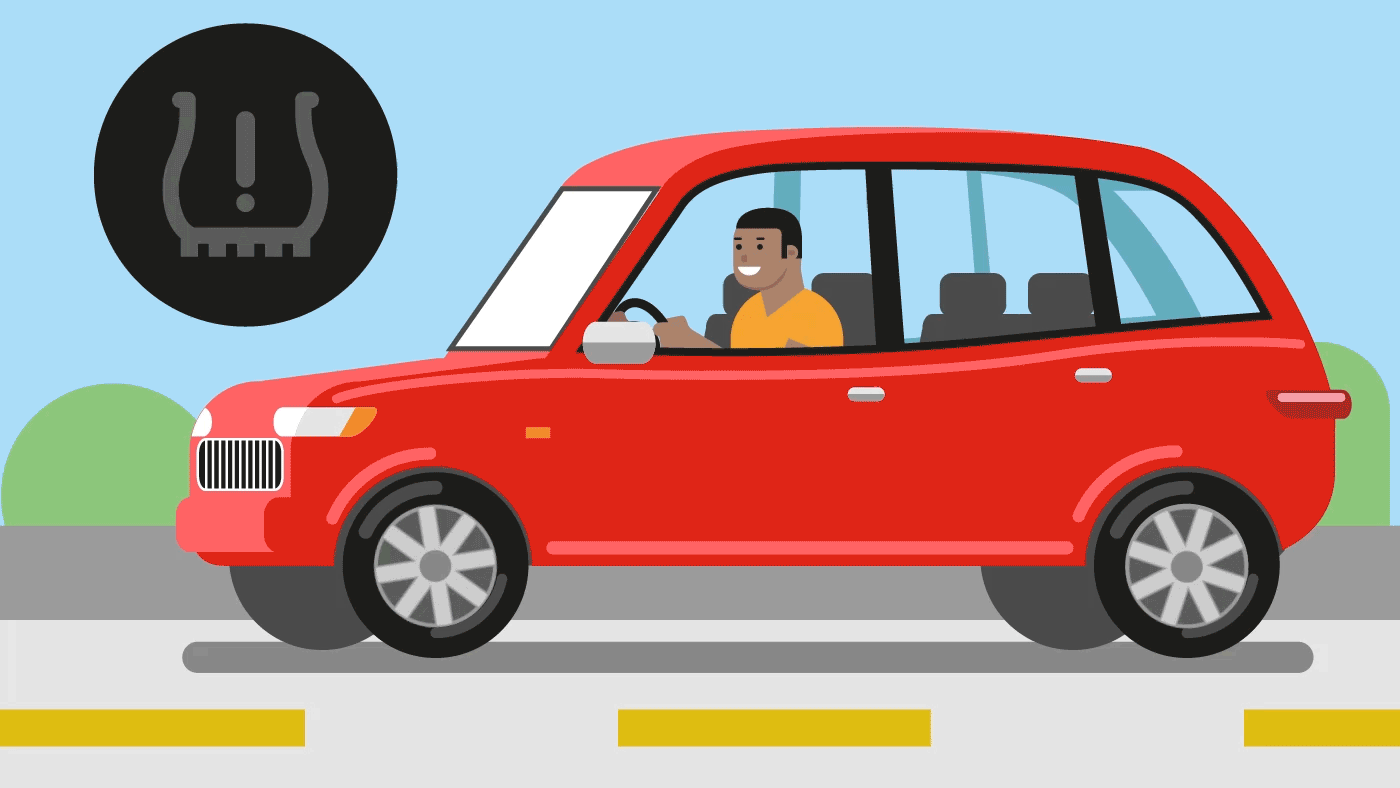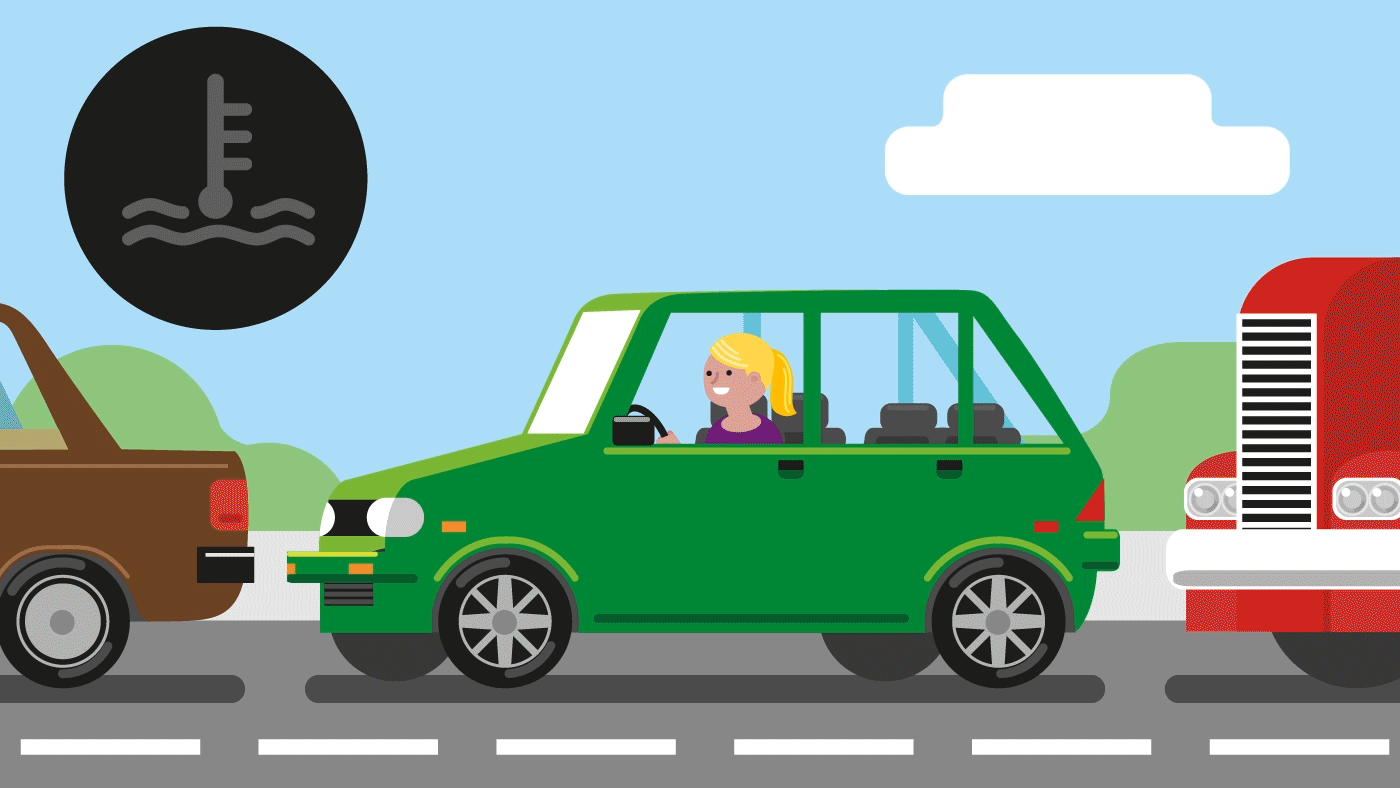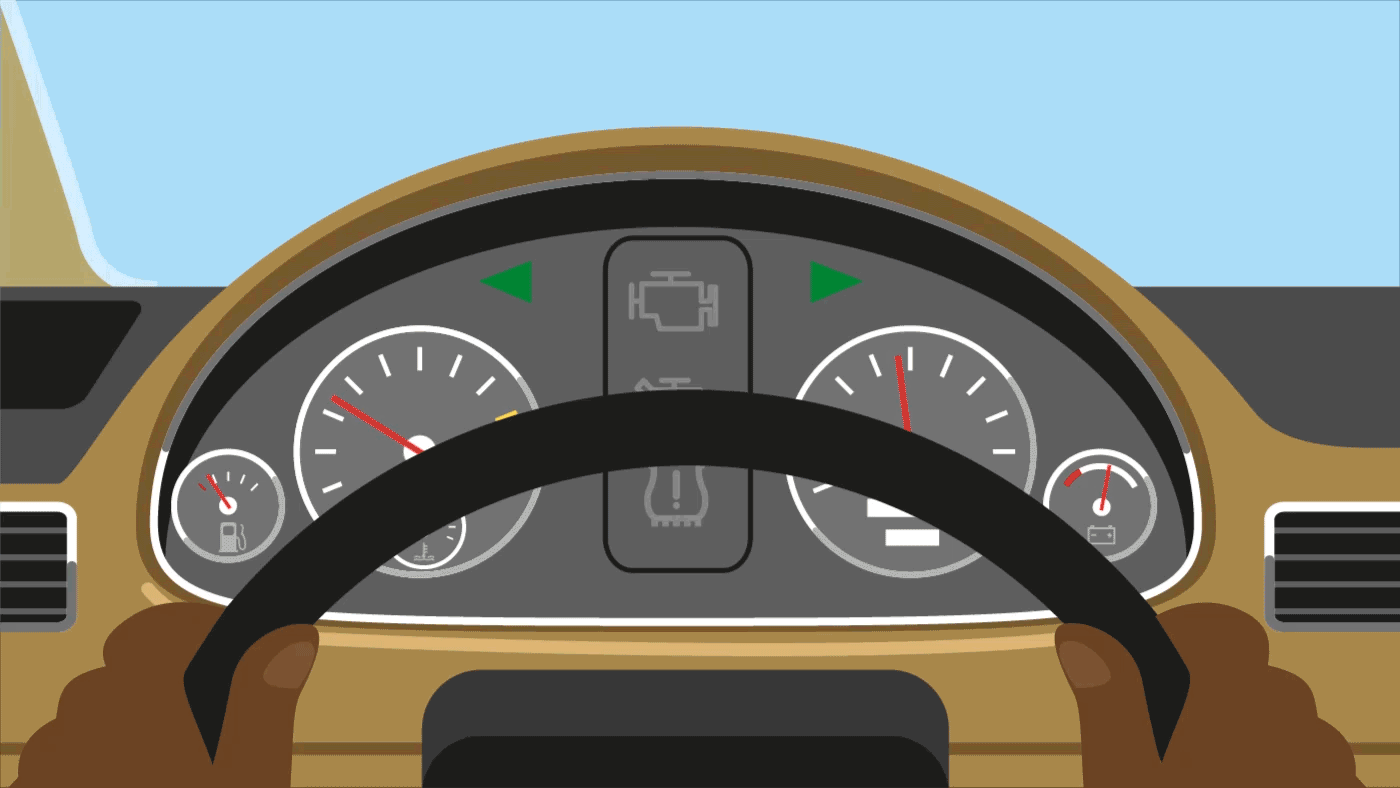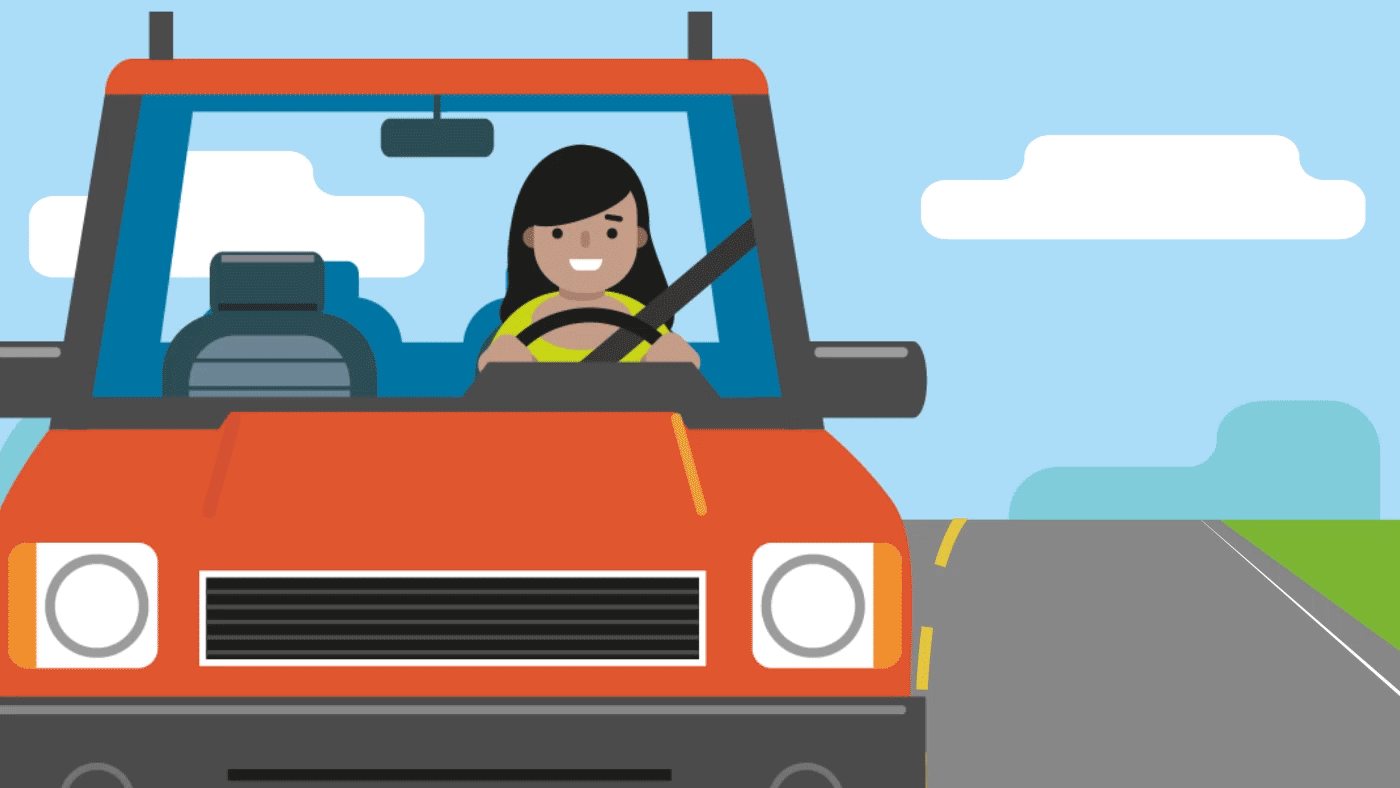7 Signs That You Need to Pull Your Car Over
It can often cause a more serious crash.
You’re driving down the road, when suddenly …
An unexpected bump, jolt or sound can be a scary surprise. Worst-case scenarios run through your head as you decide how to handle the situation. Most of the time, it’s safe to continue driving—if only long enough to make it to the mechanic—but sometimes you need to pull over as soon as possible.
Here are some common signs that you need to move to the shoulder when traffic permits:
1. Tire blowout

If a tire ruptures while your car is moving, you’ll hear a loud pop or bang. The car will quickly slow and begin to pull to the left or right, depending on which tire gave out.
Remain calm, keep a firm grip on the steering wheel and come to a stop gradually. Don’t slam on brakes, because that could cause you to lose control, especially if your car isn’t equipped with anti-lock brakes.
2. Smoke from under the hood

The most common cause for smoke from under the hood is an overheating engine. A little steam is likely a small coolant leak, which should allow you to continue driving and make it to your mechanic. However, heavy smoke is likely the sign of something more serious.
If your air conditioning is running, turn it off immediately to reduce strain on the engine. Don’t try to open the cap for the coolant reservoir because it is under pressure and could seriously burn you.
Get more tips for what to do in a car accident or breakdown.
Get Tips3. White smoke from the tailpipe
Smoke from the tailpipe can be black, blue, white or gray, each indicating a different issue. While each color means there’s something that needs attention, thick white smoke is usually the most serious.
If thick white smoke is coming from your tailpipe, your engine is likely dangerously overheated, perhaps from a blown gasket or cracked engine block.
4. Flashing check engine light

Any time your check engine light comes on, it requires attention as soon as possible. But if the light is flashing, you should pull over immediately because a flashing light typically indicates an engine misfire. Even if the car seems to be handling normally, continuing to drive without all cylinders working properly could lead to costly repairs or even a ruined engine.
5. You run out of gas
Keeping your gas tank at least a quarter full is a good idea—and not just to avoid running out. It can improve fuel efficiency and help ensure that your engine doesn’t suck up any debris that has settled at the bottom of the tank.
If the car jerks or shudders, pull over as soon as possible because you may be almost out of gas. If the engine dies, put on your flashers and coast toward the shoulder.
6. Sudden change in handling

“Better safe than sorry” also applies when your car’s handling changes suddenly. Depending on the severity of the change, it could be as minor as a difference in road surface or as serious as a wheel coming off. It’s better to safely pull over and check than to find out the hard way that your car is no longer under your control.
7. Loud, sudden noise
Any loud, unexpected noise coming from your car is likely a sign that something has gone wrong. The problem could be a faulty catalytic converter, clogged air filter or any one of a dozen other problems—depending on the source, volume and tone of the sound. If you’re unable to identify the cause of a noise, play it safe and pull over.